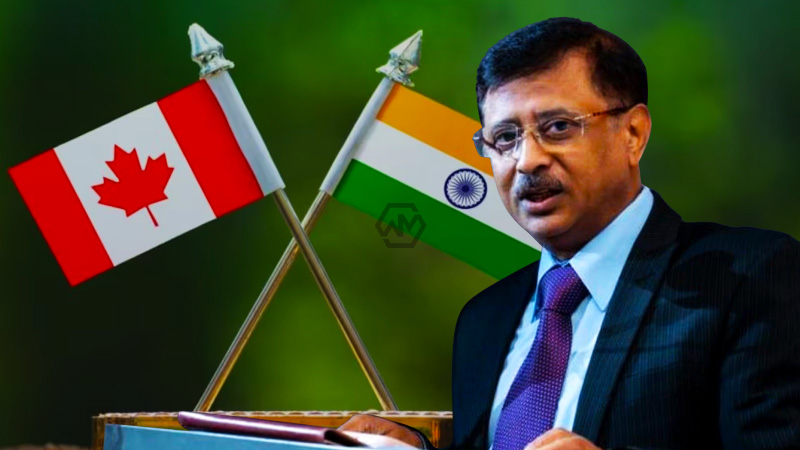- India has always taken a cooperative approach to resolving the murder of pro-Khalistan separatists.
- India feels that they would not be satisfied diplomatically or politically unless the fundamental issue is resolved.
- India has never associated trade difficulties with the allegations of the Nijjar case in Canada.
Sanjay Kumar Verma, India’s High Commissioner to Ottawa, has said that India has always had a cooperative stance toward the question of any possible connection between Indian spies and the murder of pro-Khalistan separatist Hardeep Singh Nijjar.
According to him, Canada‘s “unfriendly” stance of permitting its territory to be utilized for secessionism was the main problem.
India-Canada
India has always taken a cooperative approach to resolving this matter, seeking to handle it comprehensively through diplomatic channels while possessing the necessary knowledge.
India is concerned that radicals and terrorists are finding a home in Canada, and the Canadian government is aware of this. India feels that they would not be satisfied diplomatically or politically unless the fundamental issue is resolved.
Since the Canadian side was the one who put the EPTA negotiations on hold at a pretty advanced stage, India has never associated trade difficulties with the allegations of the Nijjar case in Canada. Since a crime has been committed and the legal procedure should follow Canadian law, India is eager for the Nijjar matter to be resolved in Canada.
India has consistently insisted that there is no connection between their country and this case, but they are willing to investigate any particular material that is brought to their attention. India is a typically upbeat person who hopes their connection will result in even more great things, like the resolution of this persistent problem.



